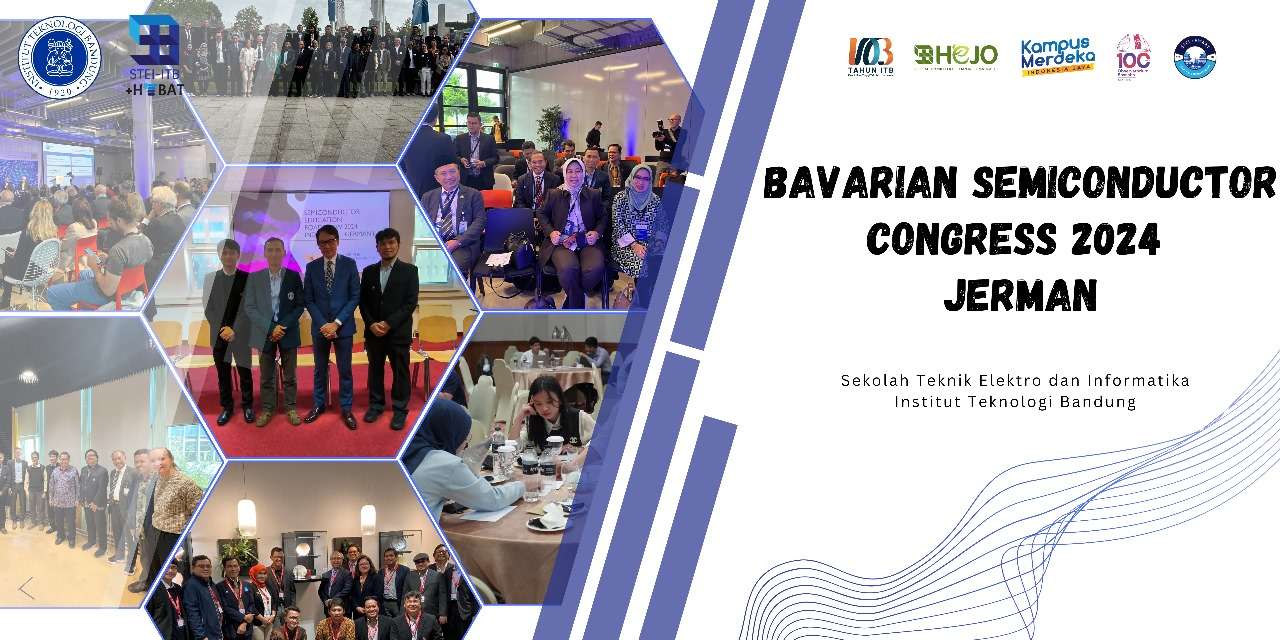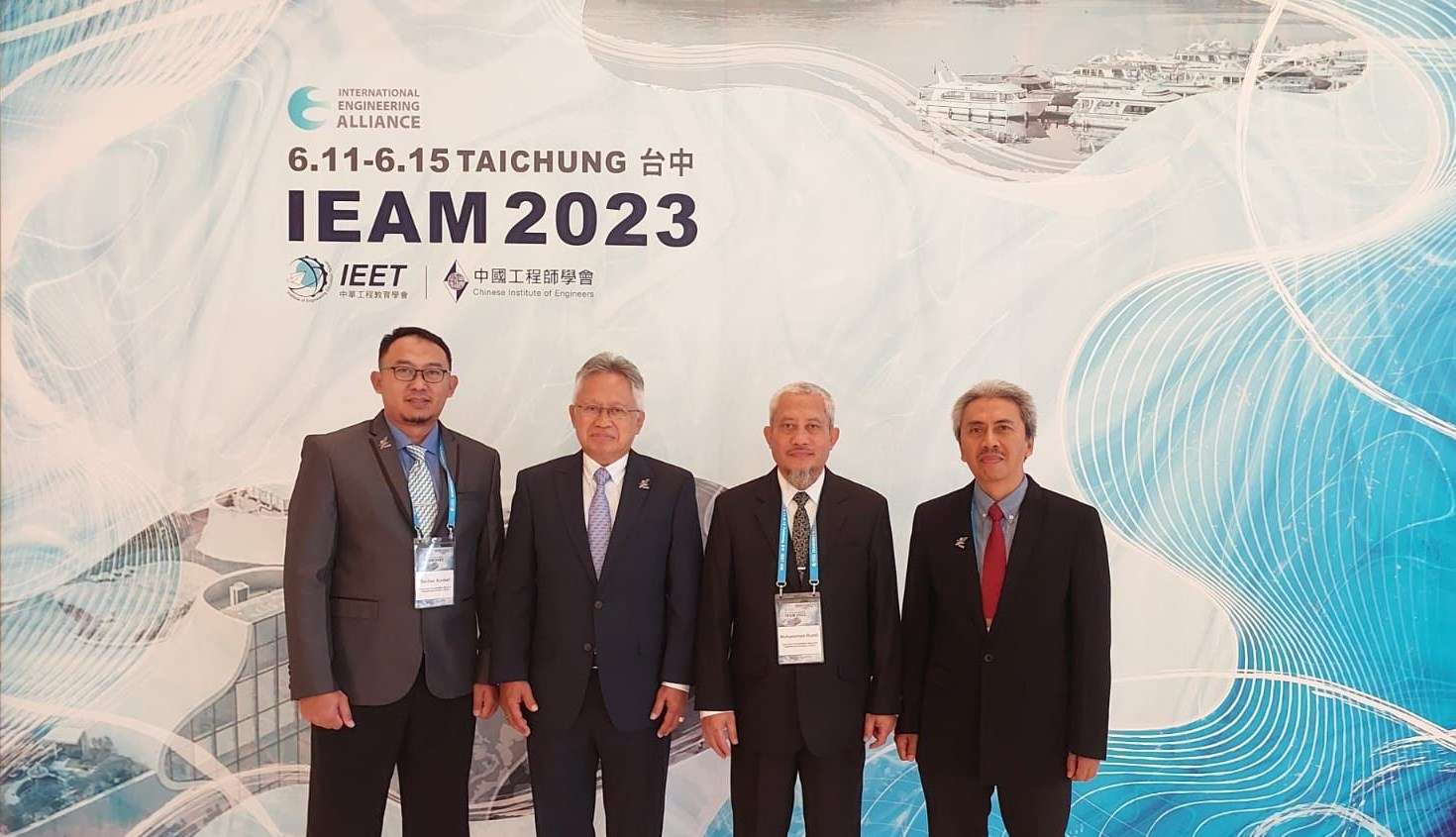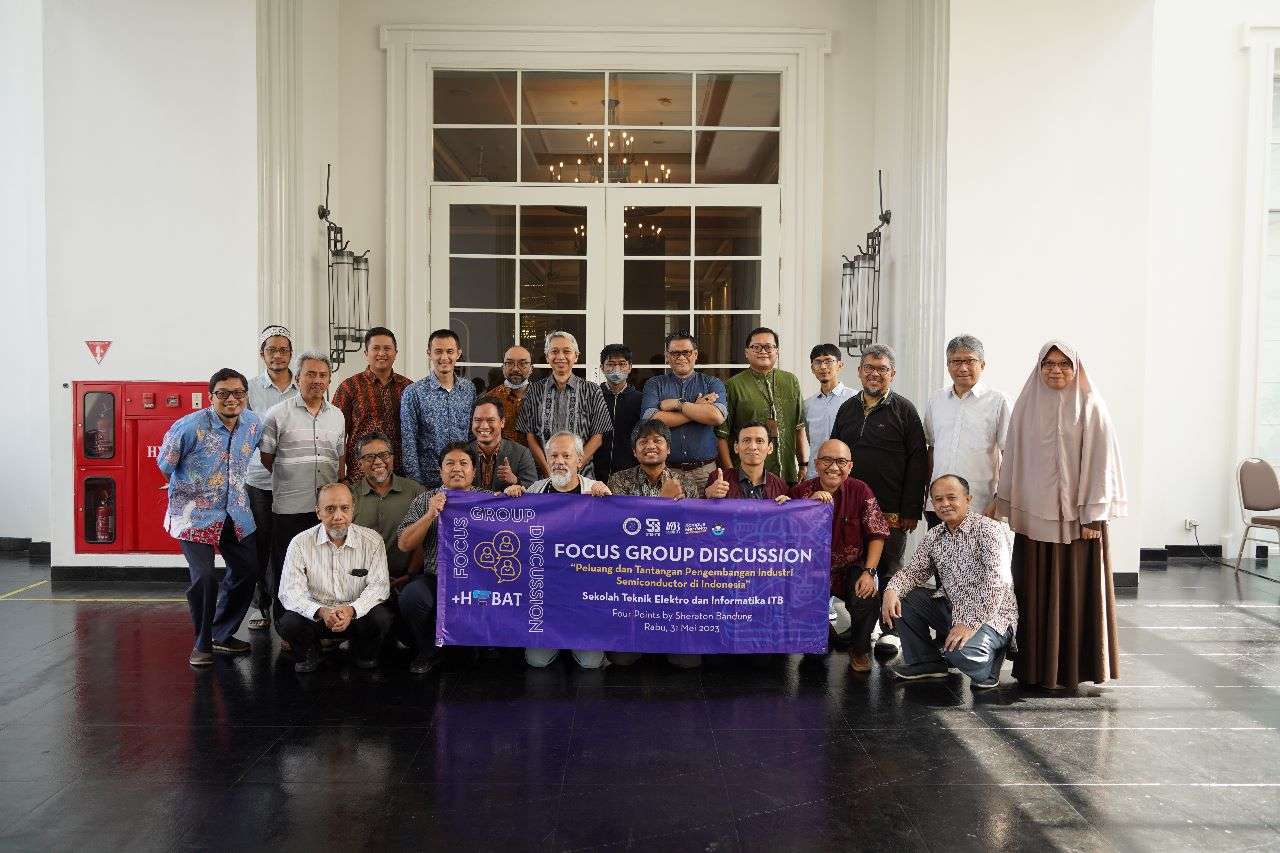Overview
Sarjana Teknik Elektro adalah salah satu bidang teknik paling signifikan yang mendorong evolusi kehidupan manusia dalam beberapa abad terakhir. Hal ini diperkirakan akan terus berjalan hingga masa depan. Teknik elektro memungkinkan teknologi yang membuka lembaran baru dalam kehidupan manusia.
Electrical engineers are the necessary transforming agents. By providing best engineering practice in every aspect, such as in maintenance and operation; inventing new products and innovations; conducting the state-of-the-art research in the field of science, and so on. The demand for electrical engineering engineers is one of the highest in the engineering field.
The electrical engineering study program at STEI ITB is supported by 53 members of the academic community who are respected in the fields of research and education. They are involved in a wide range of research activities covering areas such as control and systems, biomedical engineering, communications, computer design, graphic and image processing, computer systems and networks, digital signal processing, electronics, electrical power, information networks, smart systems, parallel distribution processes. , electrotechnical materials, microwave engineering, and VLSI integrated circuit design.
Education Objectives
• Our graduates will have successful careers in their profession in Electrical Engineering or
related fields.
• Our graduates will successfully pursue graduate study or engage in professional development.
• Our graduates will demonstrate leadership and play active roles in the improvement of their community especially industry, government or education sectors.
Learning Outcomes
• An ability to identify, formulate, and solve complex engineering problems by applying principles of engineering, science, and mathematics
• An ability to apply engineering design to produce solutions that meet specified needs with consideration of public health, safety, and welfare, as well as global, cultural, social, environmental, and economic factors
• An ability to communicate effectively with a range of audiences
• Kemampuan mengenali tanggung jawab dan etika profesional dan membuat penilaian yang berbasiskan data/informasi yang mempertimbangkan dampak dari solusi engineering dalam kerangka global, ekonomi, lingkungan, dan sosial
• Kemampuan berfungsi secara efektif dalam tim dan dapat memimpin, menciptakan lingkungan yang inklusif, menentukan tujuan, rencana, dan mencapai sasaran
• Kemampuan merancang dan melakukan percobaan yang baik, menganalisa dan mengartikan data dan menggunakan penilaian enginerung untuk membuat kesimpulan
• Kemampuan mendapatkan dan mengaplikasikan kemampuan baru sesuai kebutuhan dengan cara/strategi belajar yang tepat
• Kemampuan mempelajari pengetahuan lanjut dalam bidang engineering/rekayasa
Curriculum
| No | Code | Course | Credits |
|---|---|---|---|
| 1 | FI1101 | Basic Physics I | 3 |
| 2 | KI1101 | Basic Chemistry I | 3 |
| 3 | MA1101 | Mathematics I | 4 |
| 4 | WI1101 | Pancasila | 2 |
| 5 | WI1102 | Computational Thinking | 2 |
| 6 | WI1103 | Introduction to Sustainability Principles | 2 |
| 7 | WI1111 | Basic Physics Laboratory | 1 |
| 8 | WI1112 | Laboratorium Kimia Dasar | 1 |
| Credit Total | 18 | ||
| No | Code | Course | Credits |
|---|---|---|---|
| 1 | BI1011 | Biologi A | 2 |
| 2 | EL1200 | Pengantar Analisis Rangkaian | 2 |
| 3 | IF1210 | Algorithms and Programming 1 | 3 |
| 4 | MA1201 | Matematika IIA (Sains dan Rekayasa) | 4 |
| 5 | WI2001 | Introduction to Engineering and Design | 3 |
| 6 | WI2002 | Literasi Data dan Inteligensi Artifisial | 2 |
| 7 | WI2005 | Indonesian | 2 |
| Credit Total | 18 | ||
| No | Code | Course | Credits |
|---|---|---|---|
| 1 | EL2001 | Rangkaian Elektrik | 4 |
| 2 | EL2002 | Sistem Digital | 4 |
| 3 | EL2003 | Struktur Diskrit | 3 |
| 4 | EL2004 | Probabilitas dan Statistika | 3 |
| 5 | EL2101 | Praktikum Rangkaian Elektrik | 1 |
| 6 | EL2102 | Praktikum Sistem Digital | 1 |
| 7 | MA2072 | Matematika Rekayasa IA | 3 |
| Credit Total | 19 | ||
| No | Code | Course | Credits |
|---|---|---|---|
| 1 | EL2005 | Elektronika I | 3 |
| 2 | EL2006 | Material Teknik Elektro | 3 |
| 3 | EL2007 | Sinyal dan Sistem | 3 |
| 4 | EL2008 | Pemecahan Masalah dengan Pemrograman | 3 |
| 5 | EL2205 | Praktikum Elektronika I | 1 |
| 6 | FI2281 | Fisika Elektromagnetik | 3 |
| 7 | MA2074 | Matematika Rekayasa IIA | 3 |
| Credit Total | 19 | ||
| No | Code | Course | Credits |
|---|---|---|---|
| 1 | EL3009 | Elektronika II | 3 |
| 2 | EL3010 | Pengolahan Sinyal Digital | 3 |
| 3 | EL3011 | Arsitektur Sistem Komputer | 3 |
| 4 | EL3012 | Sistem Mikroprosesor | 3 |
| 5 | EL3112 | Praktikum Sistem Mikroprosesor | 1 |
| 6 | WI2003 | Sport | 1 |
| 7 | WI2006 | Citizenship | 2 |
| 8 | WI201X | Citizenship | 2 |
| Credit Total | 18 | ||
| No | Code | Course | Credits |
|---|---|---|---|
| 1 | EL3013 | Sistem Instrumentasi | 3 |
| 2 | EL3014 | Etika Profesi & Rekayasa | 2 |
| 3 | EL3015 | Sistem Kendali | 3 |
| 4 | EL3016 | Sistem Komunikasi | 3 |
| 5 | EL3017 | Sistem Tenaga Elektrik | 3 |
| 6 | WI2004 | English | 2 |
| 7 | WI2021 | Manajemen Rekayasa Industri | 2 |
| Credit Total | 18 | ||
| No | Code | Course | Credits |
|---|---|---|---|
| 1 | EL4090 | Proposal Proyek Akhir | 3 |
| 2 | EL4092 | Internship | 2 |
| 3 | ELxxxx | Mata Kuliah Pilihan | 13 |
| Credit Total | 18 | ||
| No | Code | Course | Credits |
|---|---|---|---|
| 1 | EL4091 | Thesis | 3 |
| 2 | ELxxxx | Mata Kuliah Pilihan | 13 |
| Credit Total | 16 | ||
Detailed explanations for each course can be accessed via the following link: https://akademik.itb.ac.id/id/program/S1/program-studi/132
Specialization
Minor
INTERNATIONAL UNDERGRADUATE PROGRAM
The International Undergraduate Program (IUP) at the Bandung Institute of Technology (ITB) provides an international educational experience through a global curriculum and the opportunity to participate in academic activities at partner universities abroad during the fourth year of study. Complete information regarding requirements, selection mechanisms, and registration procedures can be accessed through the official ITB Admissions website: https://admission.itb.ac.id/info/international-undergraduate-program/
Career Prospect
A degree in electrical engineering can qualify you for a career in almost any line of industry. Almost everyone uses electrical and electronic equipment systems, so the industry needs professionals to build, repair, and improve the performance of these devices. Electrical engineers work in various important industrial sectors, such as: Telecommunications, Energy and Electric Power, Computers, Semiconductors, Aerospace, Bio Engineering, Manufacturing, Services, Education and Research, Transportation, and Automotive.
Some of the jobs below represent only a small part of the available positions:
• Ahli Riset yang bekerja di laboratorium, melakukan tes dan penemuan. Pekerjaan ini memerlukan kreativitas tingkat tinggi, juga kesabaran. Baik menemukan alat opto-elektronik atau sesederhana mendesain pembuka botol elektrik, ahli riset bertanggung jawab dalam tahap penemuan teknologi di balik setiap produk elektronik baru.
• Ketika teknologi baru ditemukan, teknologi tersebut harus diaplikasikan. Desainer teknik menggunakan simulasi komputer dan model untuk mengubah inovasi seperti tekonologi nirkabel ke dalam bagian-bagian kecil yang membentuk telepon seluler. Desainer teknik harus memvisualisasikan bagaimana bentuk bagian dalam dari produk masa depan, sembari menemukan beberapa skenario yang memungkinkan untuk pengaplikasian tekonologi baru tersebut.
• Insinyur proyek mengawasi banyak teknisi spesialisasi di dalam konstruksi dari prorotip produk berteknologi baru. Insinyur proyek haruslah memiliki kemampuan alami untuk memimpin, juga kemampuan tinggi dalam berbagai disiplin ilmu teknik elektro.
• Insinyur uji merancang program untuk mengecek fungsi dari perangkat elektronik dan untuk memecahkan masalah perangkat tersebut saat terjadi kesalahan. Mereka menjaga teknologi tetap bekerja dengan baik, dan memahami elemen mana yang harus diuji dan sesuai urutannya. Insinyur uji yang sukses tetap memiliki intuisi yang tajam meskipun bekerja dalam waktu lama
Enrollment
Prospective students wishing to continue their studies at the School of Electrical Engineering and Informatics (STEI) can participate in the entire selection and admissions process, which is centrally organized by the Bandung Institute of Technology (ITB). Official information regarding requirements, selection mechanisms, schedules, and registration procedures can be accessed through the ITB Admissions page at the following link: https://admission.itb.ac.id/info/stei/
Contact
Contact Us
Undergraduate Program in Electrical Engineering
Labtek VIII/Gedung Achmad Bakrie, Jl. II, Lebak Siliwangi, Coblong, Bandung City, West Java 40132
Program Administrator: Ambarwati R Wahyuningsih, S.E.
Phone/WA : +62-812-2233-6637
Parking at ITB
Vehicles on the ITB campus are restricted to employees and special guests. There are three main parking facilities:
- Sasana Budaya Ganesha (Sabuga) is the largest parking area for four-wheeled and two-wheeled vehicles. Access to this parking area is from Jalan Taman Sari or Jalan Siliwangi.
- Parkir Timur (SR) provides limited parking for four-wheeled and two-wheeled vehicles. This parking area is open 24/7, except on major holidays.
- Parkir Barat (Civil) is specifically for two-wheeled vehicle users.






